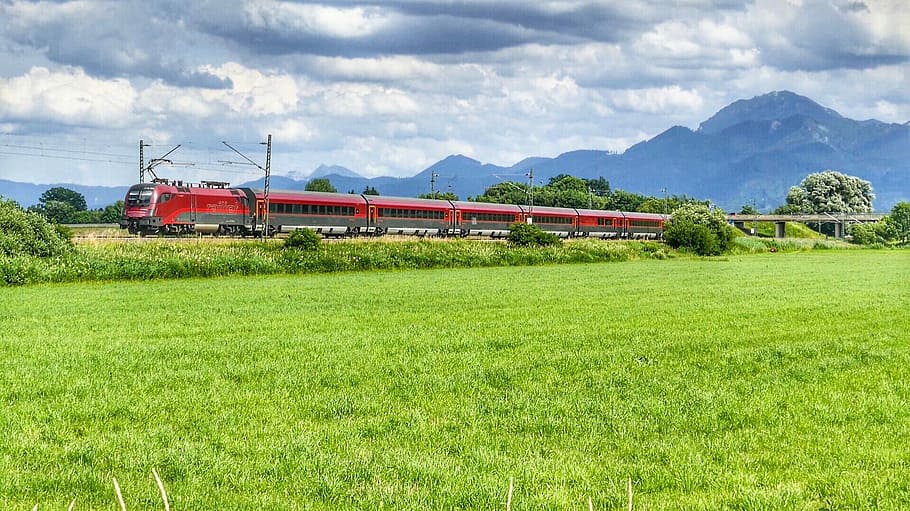Transport accounts for a quarter of the EU’s total greenhouse gas emissions. Road transport is by far the largest greenhouse gas emitter where rail transport only accounts for 0.5%. How can rail transport contribute to reaching the climate goals set by the EU? Join the online debate with experts from Denmark, Belgium and Croatia.
Date: Wednesday, May 17, 2023 Time: 4:00-5:00 pm
Venue: Online (Zoom)
Transportation is currently responsible for a quarter of the greenhouse gas emissions, making it the second-largest source of emissions in the EU. It is one of the largest challenges in the process of green transition, as it requires both large-scale structural changes, as well as a change in personal habits of citizens. As part of the pivot towards more sustainable ways of life, many countries are trying to decrease the usage of personal motor vehicles and stimulate public transportation.
Rail is one of the most energy efficient modes of transport, and as such it will be invaluable in reaching the objective of climate neutrality in the EU by 2050, as stated in the Fit for 55 program. 71% percent of EU’s GHG emissions from transport are from road vehicles, while trains are responsible for only 0.5%. The climate crisis presents both an opportunity and a necessity for rail transportation to increase its usage and popularity, but in order to do so significant changes will need to be made.
Quality and availability of rail transport varies greatly among different EU member states. In this debate we will discuss the state of play in Denmark, Belgium and Croatia. Our expert panelists will analyze each country as well as share potentially good practices which could be implemented in other member states in order to strengthen this crucial branch of transportation and make it viable for a larger number of people.
The questions we will look into is: What is the quality of railway infrastructure in Denmark, Belgium and Croatia? How is the availability of trains and connections between and with residential places? How much GHG emissions come from railways? Do we see progress on electrification of railways? What is the future outlook and possible policy changes in Denmark, Belgium and Croatia?
Join the debate with three national experts from Croatia, Denmark and Belgium.
Experts:
Malene Freudendal-Pedersen is a professor in urban planning at the University of Aalborg in Denmark where she researches in sustainable moblity. She was a guest in the Danish newspaper Information’s climate podcast “The green solution” where she contributed with perspectives on trains in the green transition.
Bernard Ivčić is Sustainable Transport Topic Leader and Coal-free Croatia Campaigner in the green organisation Zelena Akcija (Friends of the Earth Croatia). He is a long-time environmental activist and expert on sustainable transportation.
Christophe Boval works at the mobility department of the Province of West-Flanders (Belgium). He was a former journalist, where he covered transport issues, including railways, for a Belgian newspaper. His master thesis ‘applied economic sciences’ focused on the development of high speed railway connections in Europe.
How to attend:
The event is free, but registration is required.
Sign up here
The link will take you to a Zoom registration link which Crosol is the owner of. Crosol is handling the practical registration.
You will receive a link the same day as the online meeting. You will need the link to log in to the meeting from your computer.
The event is held with financial support from Erasmus+.
